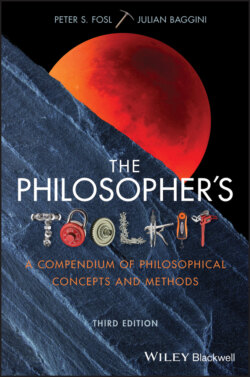Читать книгу The Philosopher's Toolkit - Julian Baggini, Julian Baggini - Страница 32
A groundless ground?
ОглавлениеDespite these problems, it seems that we can’t do without inductive generalisations and inductive reasoning generally. They are (or at least have been so far!) simply too useful to refuse. Inductive generalisations compose the basis of much of our scientific rationality, and they allow us to think about matters concerning which deduction must remain silent. In short, we simply can’t afford to reject the premise that ‘what we have so far observed is our best guide to what is true of what we haven’t observed’, even though this premise cannot itself be justified without presuming itself.
There is, however, a price to pay. We must accept that engaging in inductive generalisation requires that we hold an indispensable belief which itself, however, must remain in an important way unjustified. As Hume puts it: ‘All our experimental conclusions proceed upon the supposition that the future will be conformable to the past. To endeavour, therefore, the proof of this last supposition by probable arguments … must be evidently going in a circle, and taking that for granted, which is the very point in question’ (Enquiry Concerning Human Understanding, 4.19). Can we accept reasoning and sciences that are ultimately groundless?
